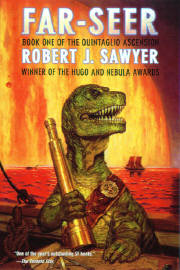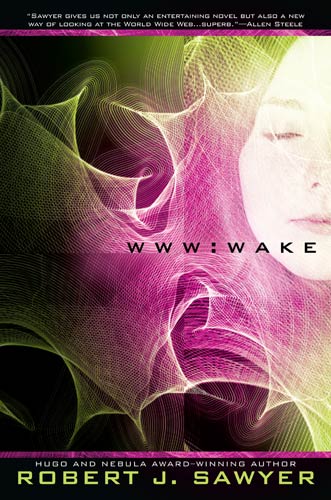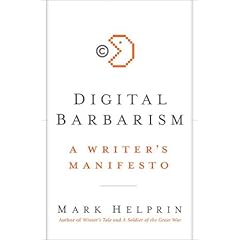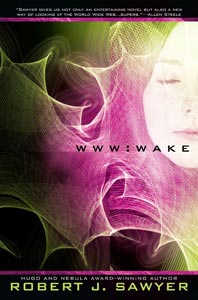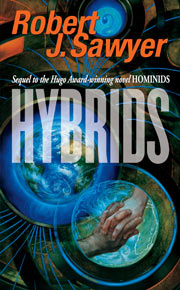British SF writer Alistair Reynolds just did a 10-book one-million-pounds deal with Gollancz,
as reported in The Guardian.
I think I've only ever met Alistair once -- we were on a panel together about hard SF at the 2006 Los Angeles Worldcon -- but
GOOD FOR HIM!Still, I'm irritated by the reportage, because the really interesting details are left out. Yes, one million pounds is a lot of money (it's about 1.64 million US dollars, which might be notionally apportioned as US$164,000 per book).
But what exactly does it cover?
Just UK and open-market territorial rights in the English language? Yowza, that's a ton of money for just that.
World English rights (meaning Reynolds will not have a separate US or Canadian or Australian publisher)? That's still really great money for a genre-fiction author (previously, his US rights had been going to Ace -- possibly because Reynolds himself controlled them, and licensed them to Ace, and possibly because Gollancz, his British publisher, sub-licensed them to Ace).
For most SF authors, UK rights might be worth roughly the same as their American rights, or maybe a little less; for a UK-based author, the UK rights might well have been worth more than the US rights, but the US rights still have real value.
World rights, including all languages/translations? It's still good money, but, well, I don't know how it is for most other writers, but for me, in aggregate, my foreign rights earnings match or exceed my English-language ones.
Ebook rights? Audiobook rights?
The former aren't worth much -- yet (but who knows about a decade from now -- and who knows what percentage royalties for ebooks will be considered fair a decade from now; Reynolds is presumably locking in a rate today).
The latter are easily worth four figures (in dollars) per book, and might eventually be worth five; the audio market seems to be taking off as it shifts to downloads from the cumbersome cassette/CD days.
Almost everyone has to give their print publishers the ebook rights these days; I always retain my audiobook rights.
World rights, including all languages/translations, audiobooks, and ebooks -- plus film/TV rights? The million pounds is still good money, but not super-spectacular.
Of course, a deal like that doesn't mean the publisher gets to keep all the film/TV money, but it
does mean they get part of it, and the default boilerplate split in most contracts is that they get half (although that percentage can be whittled down).
I never give my publishers any of my film/TV rights; if I had, well, Tor would have had a very large bonanza on the sale of
FlashForward to ABC; instead, I got all the money myself.
And is it ten separate US$164,000 advances -- meaning that each book starts generating royalties when it's earned out its individual advance? Or is it one big US$1.64 million advance, joint accounted (or "basket accounted," as it's sometimes called), meaning he cumulatively has to have earned US$1.64 million back before he sees dime one (or his first ten pence!) in royalties?
That could quite realistically mean he'll never see royalties at all (since one under-performing book can keep you from ever earning out a bulk advance), or, if he does, it won't be until, oh, maybe 2021 or so at the earliest.
That is, the first book under this contract will be published in October 2010 (says the article) -- and so the last book of ten on this contract should be published late in 2020, and advances are usually geared to cover at least the projected first-year earnings of the book, meaning the following year might be the first in which he sees royalties.
Okay, the article that
I linked to above is in a mainstream newspaper, but the reportage in the SF press is just parroting it, instead of getting the answers to the above questions, or at least pointing the questions out.
Yes, for sure, for sure, it's an amazing deal, and a huge vote of confidence in Alistair by his publisher (and, for that matter, a huge vote of confidence
by Alistair in his publisher). But the
Guardian article says:
There hadn't been such a sizable deal for a science fiction writer in the last decade.
That's a paraphrase by the reporter of something Maxim Jakubowski apparently said, and I'm sure Maxim was much more precise in his language, because it's clearly
not true as an all-encompassing statement (although might well be true about a deal for UK-rights only).
Kevin J. Anderson and Brian Herbert I believe got US$5,000,000 for their latest
Dune trilogy, meaning they got as much
per book as Reynolds will get in total for all ten.
And my buddy S.M. Stirling
did a deal last year that's for fewer books but might well be for more money per book than Reynolds got (again, we just don't know because the actual parameters of the Stirling and Reynolds deals aren't publicly knowledge [nor should they be]).
The Stirling deal is six books for "seven figures" (in American dollars), meaning a minimum of US$1,000,000 -- which is at least US$167,000 per book, if they're apportioned equally, or
at a minimum $3,000 more per book than Reynolds got. But, still, there's no real way to compare without knowing what rights have been acquired.
Now, what about that million pounds? Does it come all at once? And do authors have to repay advances if the books don't earn out?
The answers are no and no. :)
The author gets to keep the advance whether it earns out or not. The only times an author might have to repay an advance would be (1) failure to deliver an acceptable version of the contracted-for book in a reasonable time, or (2) a major material breach of the warranties the author provided in the contract is uncovered (for instance, that the work was plagiarized or extensively libelous).
That said, there will almost certainly be a complex delayed payout schedule in Reynolds's contract: some amount on signing the contract, and then portions on (I'd assume) delivery or acceptance of each manuscript, portions on hardcover publication, and portions on paperback publication -- in other words, at least 31 payout events (overall on signing, plus three installments minimum per book). Of course, even sliced in the smallest possible way, into 31 equal parts, the minimum payout per event for a one-million-pound advance is US$53,000 -- of which an author's agent will typically take 15% as fees, leaving about US$45,000 per event, before taxes.
So, if, hypothetically, an author with a ten-book contract stopped writing after the third book (not that he would!), the publisher wouldn't be out much, because the on-signing portion of books four through ten would be all he would have received for the unwritten books (and those monies would be legally recoverable via the failure-to-deliver clause, anyway).
For a big contract, on-signing tends to be small (maybe even just 10% of the total contract value); for mid-sized contracts, a fifty-fifty split is common (half on signing, half on acceptance of the manuscript). Only for very small contracts can on-signing (or for really small publishers, on-publication) sometimes be the full advance -- that's what we do at
RJS Books, the line I edit, for instance, since in most cases it's more trouble than it's worth to fiddle around with a series of small payouts.
Anyway, hearty and sincere congratulations to Alistair Reynolds! Having a decade of job security is something almost no freelancer ever gets. Way to go!
Visit The Robert J. Sawyer Web Site
and WakeWatchWonder.com
Labels: contracts, Publishing
